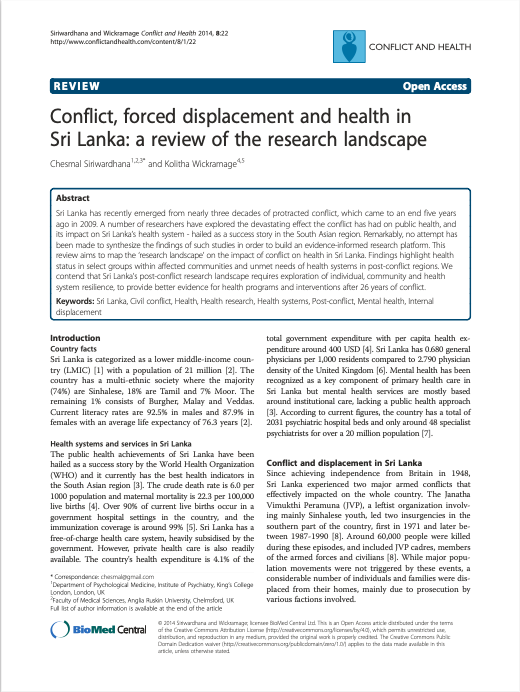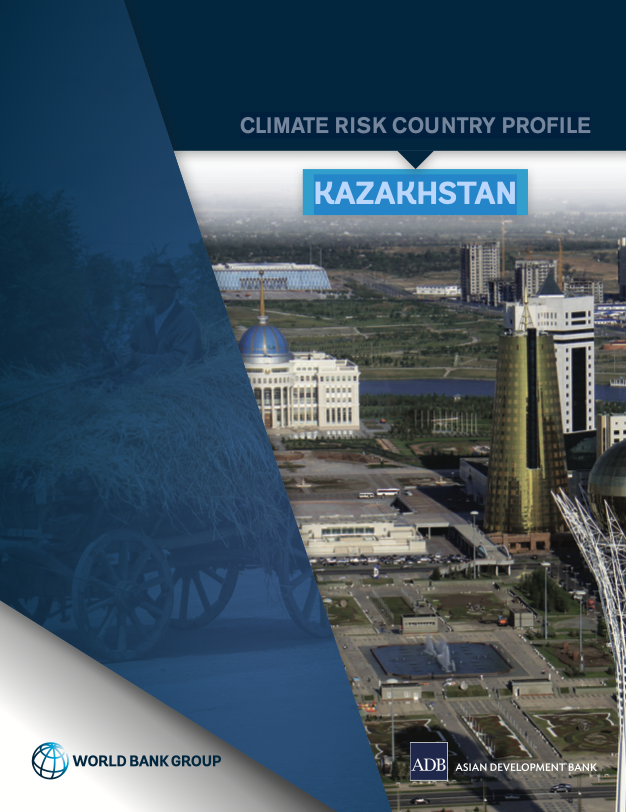Conflict, forced displacement and health in Sri Lanka: a review of the research landscape
Sri Lanka has recently emerged from nearly three decades of protracted conflict, which came to an end five years ago in 2009. A number of researchers have explored the devastating effect the conflict has had on public health, and its impact on Sri Lanka’s health system - hailed as a success story in the South Asian region. Remarkably, no attempt has been made to synthesize the findings of such studies in order to build an evidence-informed research platform. This review aims to map the ‘research landscape’ on the impact of conflict on health in Sri Lanka.






